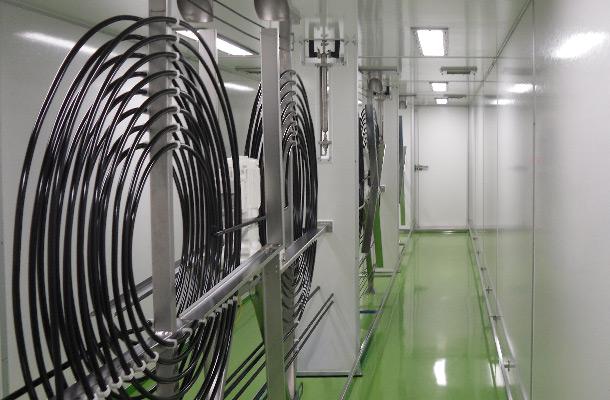The Institute, which produces human influenza vaccines for the Russian market, has commissioned the renovation of its entire primary incubation centre with the Company’s P18 primary phase incubators. With an annual primary incubation capacity of around 28 million embryos per year, the new facility will rank among the largest and most advanced systems in the world.
In total, 12 P18 primary stage incubators, each with a capacity of 77,760 eggs, will provide a total incubation capacity of 933,120 chicken eggs at any one time, incubating chicken embryos to day nine, at which point they will be inoculated with human influenza virus for vaccine production.
Steve Warren, CEO of NatureForm Hatchery Technologies from Jacksonville Florida comments, “We have been working on this project with various vaccine production specialists for more than a year, to design and lay out a facility that delivers the highest levels of bio-security.”
NatureForm Hatchery Technologies has created bespoke programmes for its single stage primary incubators, to guarantee the fastest, most uniform growth of the embryos over the requisite nine day incubation period. Mr Warren explains, “Using embryos that are well developed and uniform in size at this stage greatly enhances the vaccine yield post-inoculation.”
Anatoly Evtushenko, deputy director of development for St. Petersburg Scientific Research Institute of Vaccines and Sera, concludes: “It has taken us a good deal of work to select the right partner for this project.
“We were looking for a company that combined expertise in vaccine production and technical support with the right type of primary and secondary stage incubators. Such companies are very unique in the world.
“In NatureForm Hatchery Technologies, we have found such a company: a partner that understands the advantages of specialized incubation programmes with the added benefit of experience handling the regulatory and procedural paperwork associated with a vaccine incubation project.”
The renovation project is due to begin in the second quarter of the year and will be completed in time to support production for the 2014 flu season.
